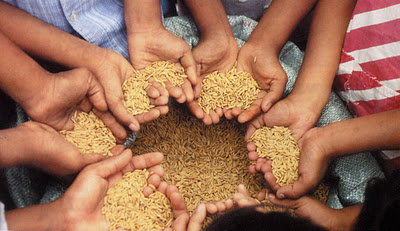Fitrah Amount for 2021 is $10 per person. Sadaat – Click Here

The Zakat may be paid directly to the poor, to your local Mosque, Center, Nasimco or to the religious authority and their agents, who have knowledge and experience in the proper venues of appropriation.
What is Fitrah
It is religious tax (zakat) paid on the day when Muslims break the fasting period at the end of the month of Ramadhan. This alms is known as Zakat al-Fitrah.
Can we give Fitrah in advance?
Giving Fitrah before the eve of Eid al-Fitr is not permissible. However, if you wish to send Fitrah earlier so that it reaches the needy on time, then you can send it as a temporary loan to the needy and then change your intention from loan to Fitrah on the eve of Eid al-Fitr.
What do the Qur’an and Hadith say about Fitrah?
Imams (a) say that the verses: Indeed whosoever purifies himself shall achieve success, and glorifies the Name of his Lord and prays (87:14 & 15) refer to giving of Fitrah and saying prayers on Eid al-Fitr. Imam Ja`far as- Sadiq (a) said: for your fast to be accepted, give zakât.
When does Fitrah become wajib?
Payment of Fitrah becomes obligatory after sunset on the eve of Eid al- Fitr. The Fitrah should be kept aside and paid on Eid al-Fitr before Eid prayers or before midday for those who cannot say their Eid prayers. It is necessary to have obligatory intention (niyyah) of giving Fitrah for God’s pleasure only.
To whom is Fitrah obligatory?
Paying Fitrah is obligatory on every Muslim who is mature (baligh), sane, financially able, and conscious on the eve of Eid al-Fitr. Fitrah should also be paid on behalf of all dependents (e.g. wife, children) whom one supports financially.
How much should we pay for Fitrah?
Fitrah for a person is given on a weight of three kilograms (one sa`a) on any food commodity like wheat, barley, rice, millet, raisins or dates. Ayatullah Seestani is of the opinion that the item that is not a staple food in your town should not be given in Fitrah. Say, for example, if millet is not a staple in Vancouver then Vacouver mumineen should not pay Fitrah on millet.
Whom should we give the Fitrah to?
It is given to the needy who are unable to meet their own or their dependants annual living expenses, nor do they have the means to do so through earning. Ayatullah As-Seestani says that the needy who is given the fitrah must be a Shi`ah Ithna `Ashari.
Are there any additional rules that we need to be aware of?
A. Following are some important rules:
(i) Fitrah should not be sent outside the town one resides in, if there are deserving mumineen in that town.
(ii) Fitrah from a non-Sayyid cannot be given to a needy Sayyid; the reverse is permissible.
(iii) A needy should be given at least one Fitrah
(iv) Amongst the needy, relatives should be preferred over others when giving Fitrah, next in line are neighbors and then the learned.

